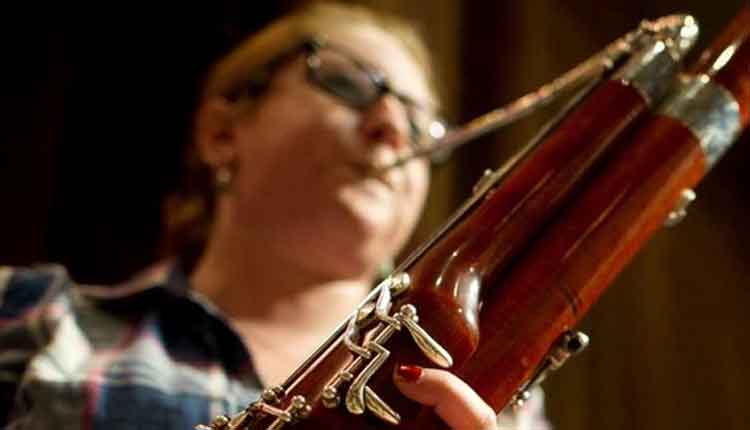As the leaves change color and football teams take the field, another school year is upon us. Before we know it, the marching band will play its last half time show and concert band will begin. Now is the time to begin developing a full concert band complete with auxiliary instruments and double reeds. As a bassoonist, I realize the challenge and importance of switching the right students to bassoon. With a little careful planning, you can ensure a strong bassoon section for years to come.
The best age to switch a student to the bassoon is in the 7th or 8th grade. I do not recommend starting beginning band students on the bassoon as they are often physically too small to play an instrument with such a wide finger-spread. Also, the bassoon is a technically demanding instrument. Waiting until the 7th or 8th grade will give the student time to learn how to read music, rhythms, dynamics, breathe, and produce phrases on a slightly less-difficult instrument. He can then transfer these basic skills to the bassoon, giving him time to concentrate on the new fingerings and unique challenges of the instrument. Another positive aspect of waiting until junior high to switch a student to the bassoon is, with occasional practice, they can maintain skills on their previous instrument to play in their high school marching band.
Thought must be put into which students should switch to bassoon. Not every student will be successful at beginning a new instrument. The new bassoonist will have to start behind the others in class, so he needs to be a bright student who is willing to put time and effort into catching up with the other band members. He should be a talented young musician with a positive attitude and work ethic. Students with previous experience reading bass clef (piano, trombone, etc.) tend to be more successful since they can concentrate on learning the new instrument, not the notes.
A good bassoon recruitment process is essential for a successful program. Merely announcing that you need bassoon players is usually not effective since most students do not know what the bassoon is. The best way to get kids excited about an unfamiliar instrument is to bring in a great musician to demonstrate it. Contact a local college student or symphony musician who is interested in expanding their teaching studio. This way the students can hear the sound of the bassoon and see the instrument up-close, while developing a relationship with a potential private teacher. Seeing and hearing the bassoon played in person is quite impressive and will be your best recruitment tool.
In addition to getting the students excited about the bassoon, make sure their parents are excited as well. Consider sending a permission slip and letter home that the parents read and sign before the student is issued an instrument. This letter should include an explanation of the bassoon itself, the school instrument rental/loan policy, and a list of private instructors in the area. This will prevent frantic phone calls from parents. Understand that a parent who just bought their child a saxophone or clarinet may not be excited about them switching to a new instrument.
Good reeds are the most important factor in success as a bassoonist. Private teachers can provide insight into the idiosyncrasies of bassoon reeds, making private lessons an essential part of a young bassoonist’s growth. This encouragement as well as the general ideas discussed above, will ensure a smooth and successful transition to the bassoon. A positive start with the instrument will not only fill out your concert band, but fuel a lifetime of excitement for music.
Amanda King, a native of Toledo, Ohio, received her Bachelor of Music degree in Bassoon Performance from the University of Cincinnati College-Conservatory of Music and her Master of Music degree from the University of Michigan. She currently holds the position of Second Bassoon with the Wisconsin Chamber Orchestra and the Madison Symphony Orchestra. Amanda enjoys teaching private lessons and has served on the faculties of the Interlochen Arts Camp All-State Program, the University of Wisconsin Summer Music Clinic, the University of Michigan Summer Arts Institute, and the University of Cincinnati College-Conservatory of Music Preparatory Department.


